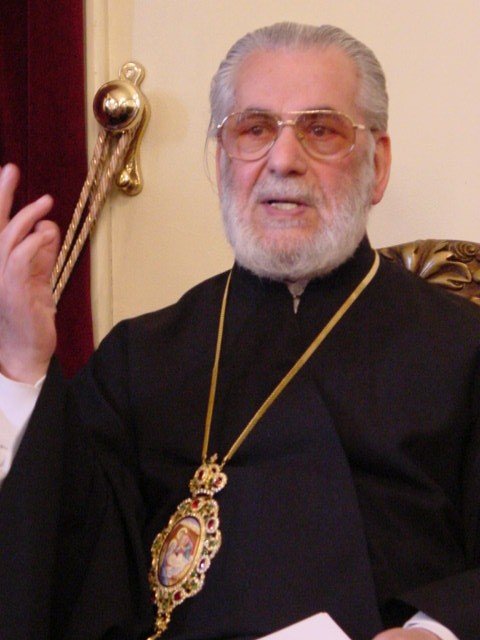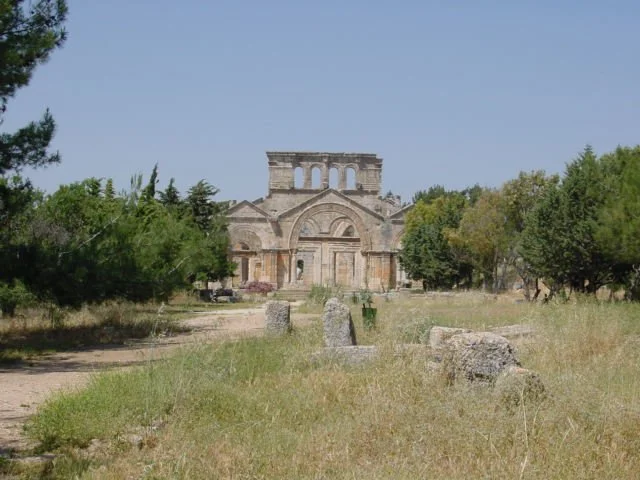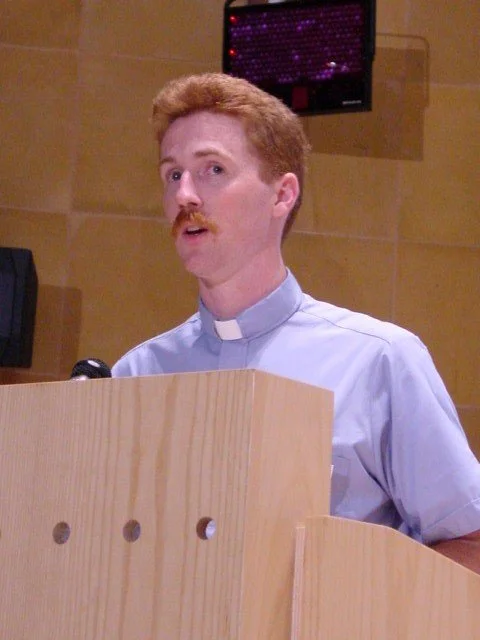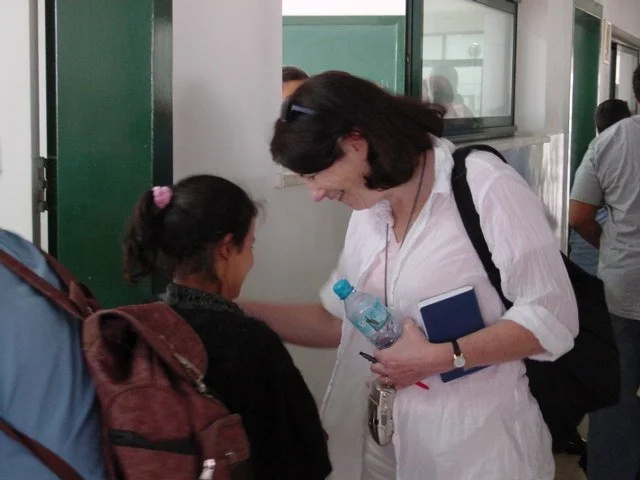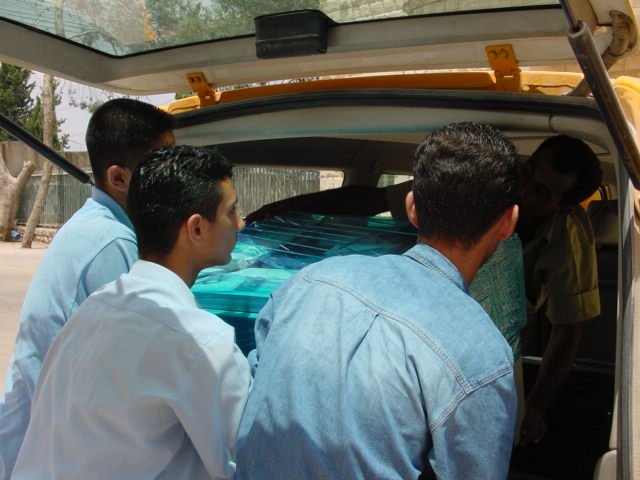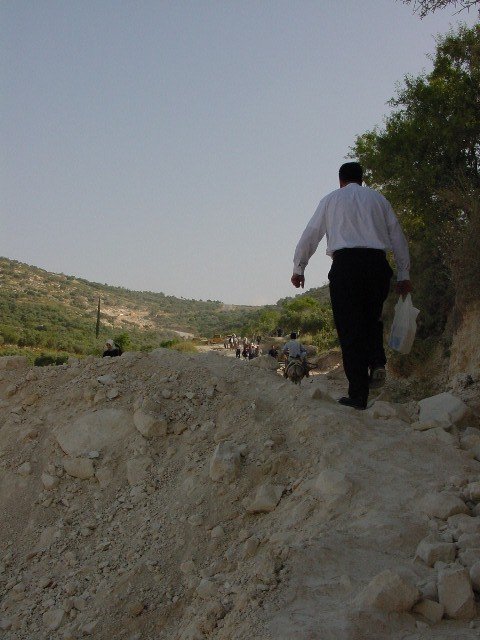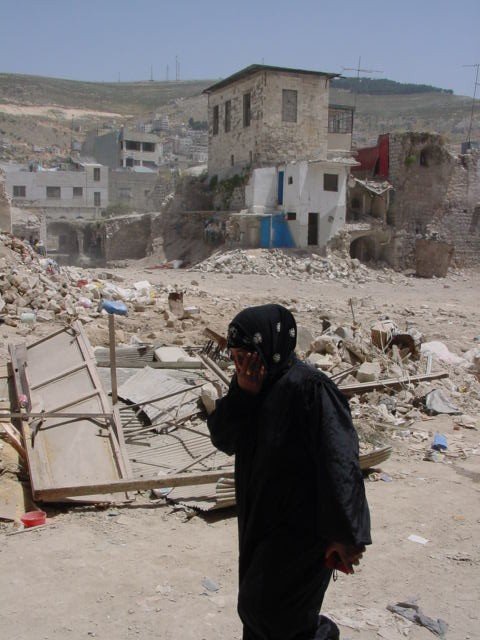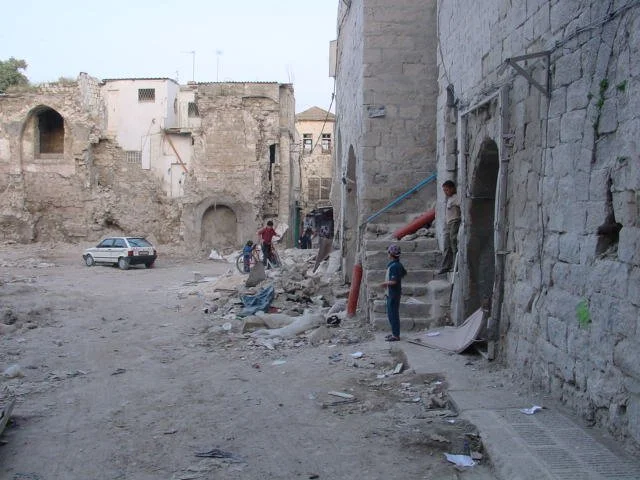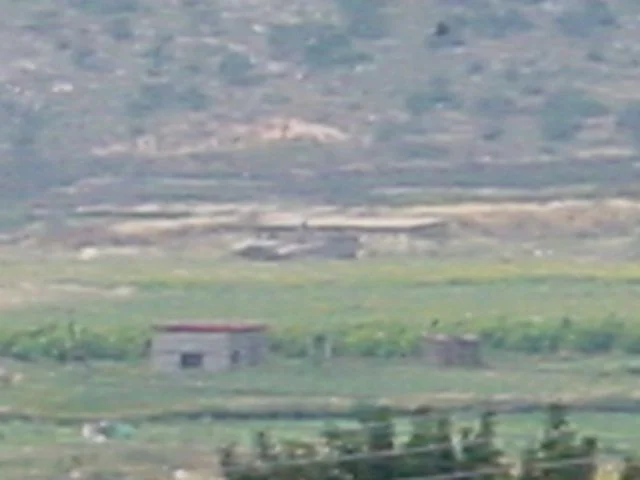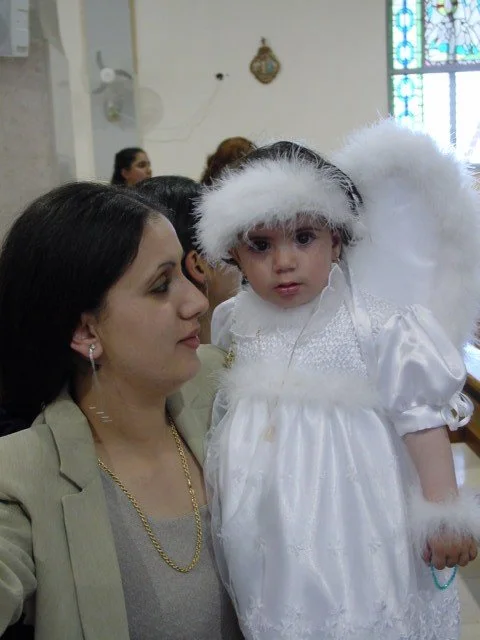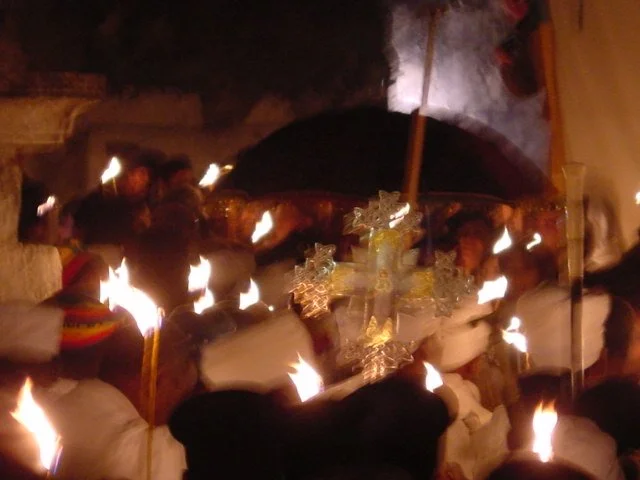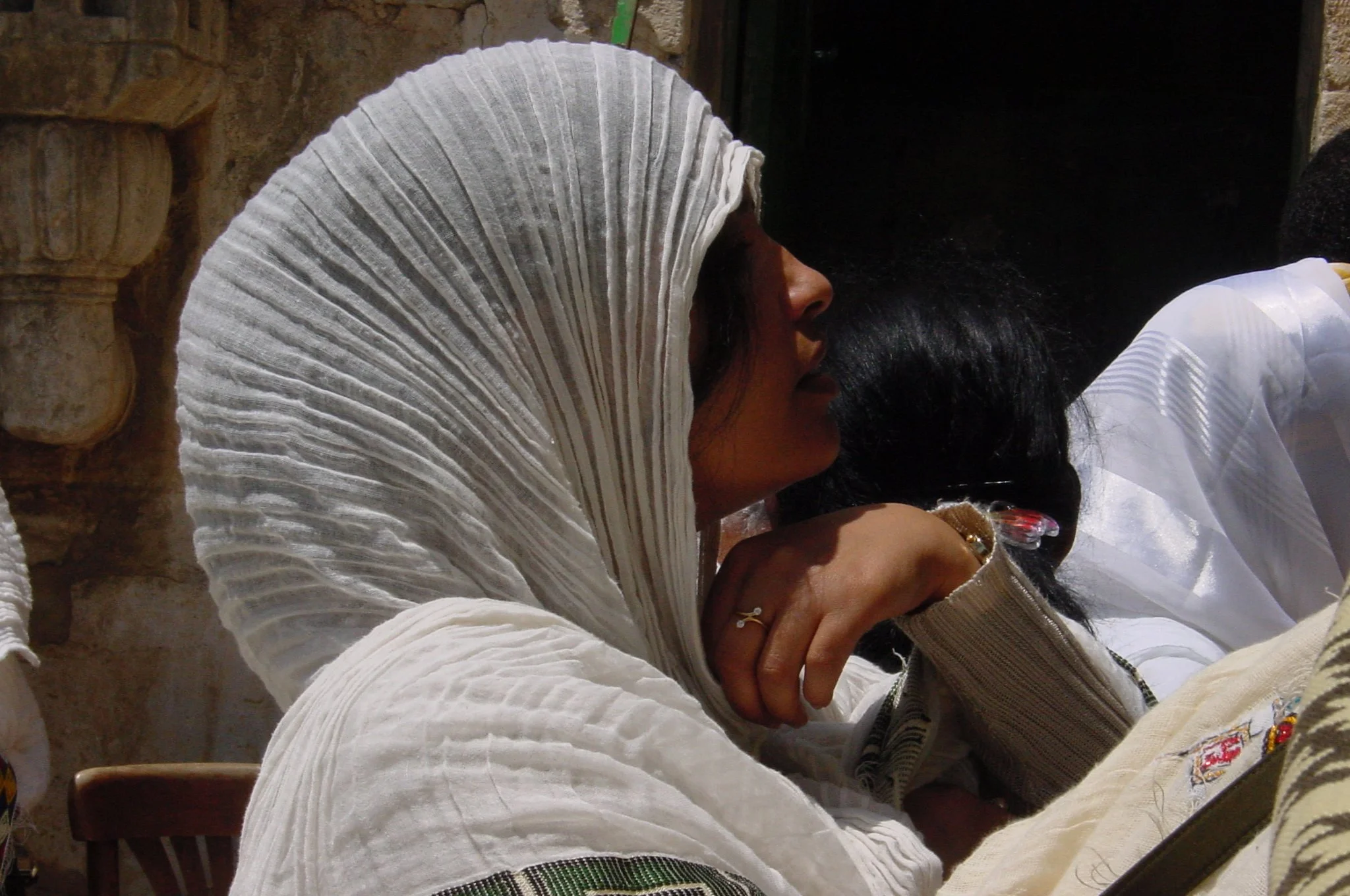May, 2002
Reflecting on the question of proselytism, he called us in the West to recognize that Islam is a reality to be understood, not ignored. As such, we in the Church must find our language for speaking with Muslims and sharing our faith - conversion is the work of the Holy Spirit, but proclamation and witness are ours.
Many were troubled by outsiders coming in to change Muslim hearts, failing, and leaving the local church to clean up the mess and bear the brunt of resentment.
We then headed off to meet with Sheikh Ahmed Hassoun, the Grand Mufti of Aleppo. He and Metropolitan Ibrahim (Syrian Orthodox) together received us in the mosque.
Our first stop was at what is now called Simon's Citadel, but is famous for its ruins and one of its former residents, St. Simeon Stylites.
Another long bus ride, another set of ruins, this time the spectacular site of Baalbeck.
We headed down to southern Lebanon, for which we had to receive special visas. This is the area that was under Israel Occupation until 2000, an occupation that ended, we were told, due to the fierce resistance of Hezbollah. The people of the region are grateful for that liberation, as is evident by the waving of Hezbollah's yellow flags everywhere you go.
We had to bid farewell to some new dear friends, particularly those from the Iraqi delegation. Marthame and the Armenian Bishop of Baghdad had shared many wonderful conversations together.
Protestant, Orthodox, and Catholic leaders unanimously said the Eastern Church calls on the Western Church to be a prophetic voice for truth and peace.
The centerpiece was the panel of Iraqi church leaders from the Armenian, Syrian, Chaldean, and Evangelical (Presbyterian) churches.
We began, as we rightly should, with worship - the Maronites, Syrians, Latins, Protestants, Armenians, all were represented and participated.
The commute from Nazareth to Amman to Beirut was simple - if a bit roundabout. Lebanon is just north of Israel, and really not that far from the northern West Bank but there is no border crossing between the two countries (unless you happen to be a UN peace-keeper).
One of them is a new Lebanese song which has become quite popular, "Nahnu mish irhabi", with the chorus, "We're not terrorists. We're the people of freedom - Muslims and Christians." Everywhere you go in the West Bank, people are singing this - Muslims and Christians.
It was a long, exhausting day, but wonderful - the schedule gelled well, the group was enthusiastic and pleased, and it was a long-overdue chance to show of the area of Zababdeh that we've come to know and love.
Someone has been adding to the graffiti on the ruins, adding slogans like "Live Free or Die", "Give me librty [sic] or give me death," or "We won't forgive, we won't forget" (reminiscent of Elie Wiesel's sentiment).
Today was Arafat's first day out of Ramallah in months, and he was planning to visit Bethlehem, Jenin, and Nablus in a borrowed Jordanian helicopter.
The number of people filing into Nablus (the morning commute) was staggering - people dressed in their business best, struggling downhill, making their way between the donkeys bearing people or their bags, through the white dust, coming out on the other side coated with a thin layer of the stuff.
At one point, they devised a shirt for use at checkpoints - by tying strings from the sleeves to the bottom of the shirt, you could raise your arms and your shirt in one movement (something many young Palestinian men have been forced to do in the last several months). They jokingly made plans to market their new invention. Such is humor these days...
The caretakers of the Compound, an Orthodox Nablus family, spent the entirety of the battle and onslaught in their home (and a few days of it in one room) with a tank parked outside. Most of their windows were broken from the sound, and a few were broken from stray gunfire. One metal shutter had an enormous hole blown through it. But they are safe, and it was good to see them.
Late in the afternoon, as we sat out on our porch with a student from the University, two tanks went rumbling along through the fields - the sound of their grinding motors is unmistakable. They then headed up the hill, probably on their way to Qabatiya. One isn't sure of much these days.
The decimation of the Palestinian Authority, especially its police and civil infrastructure, threatens to leave people under a kind of Wild West justice, without the semblance of law, order, and due process they had attained.
The Israeli army apologized, but this is not an isolated incident - a number of "accidental" killings have happened over the past year and a half (not to mention over the 35 years of Israeli Occupation), further fueling anti-Israeli sentiment in this area.
She asked why Marthame didn't just become an Orthodox priest, especially after such a week. We said it'd be better to bring the rest of the Presbyterian Church with us rather than abandoning them to their Protestant ways like lost sheep.
The fire quickly passed throughout the Church, from one bundle to another (33 candles together make quite a torch). It was, at the same moment, thrilling, moving, and terrifying, as we were tightly-packed in with very enthusiastic people jumping and cheering with big sticks of fire.
At about 1:30 in the morning we thought that they were almost finished. That's when we noticed that they were only halfway through their prayer books. We went home; we clearly don't have the endurance to be high, high church Orthodox.
Ethiopians have strong connections with all three faiths of this land - Mohammed said that Ethiopians were unparalleled among the nations; one of the first converts to Christianity was the Ethiopian eunuch baptized by Philip (Acts 8); and the kings of Ethiopia traced their lineage back to Solomon via the Queen of Sheba (I Kings 10).

